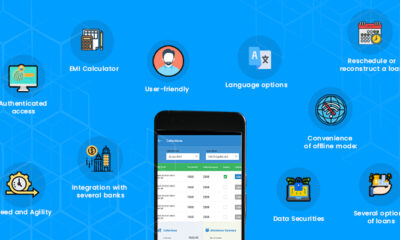Loan
What Is a Loan, How Does It Work, Types, and Tips on Getting One

Introduction
Loans are a common financial tool that allows individuals and businesses to borrow money from lenders. Whether you want to buy a house, start a business, or cover unexpected expenses, a Loan provide a means to access immediate funds and repay them over time. Understanding the basics of loans, how they work, the different types available, and some tips on securing one, can help you make informed financial decisions.
What Is a Loan?
A loan is a sum of money that someone borrows from a lender with the agreement to repay it, usually with interest, over a specific period of time. It is a legal agreement between the borrower and the lender, outlining the terms and conditions of the loan, including interest rates, repayment schedule, and any collateral required.
Loans can be obtained from various financial institutions, such as banks, credit unions, online lenders, and even friends or family members. The lender assesses the borrower’s creditworthiness, income, employment history, and other factors to determine the loan eligibility, amount, and interest rate.
How Does a Loan Work?
When you apply for a loan and are approved, the lender provides you with the requested funds. In return, you promise to repay the loan amount, typically in monthly installments, over an agreed-upon time frame. Each installment consists of both the principal amount borrowed and the interest charged by the lender.
The interest on loans can be fixed, meaning it remains the same throughout the loan term, or variable, where it fluctuates based on market conditions. The repayment period can vary significantly, ranging from a few months for short-term loans to several decades for mortgages.
Types of Loans
1. Personal Loans:
Personal loans are general-purpose loans that can be used for various needs, such as consolidating debt, paying for medical expenses, or financing a wedding. They typically have fixed interest rates and are unsecured, meaning no collateral is required.
2. Auto Loans:
Auto loans are used to purchase vehicles, and they often require the vehicle as collateral. The loan amount, term, and interest rate depend on factors such as the borrower’s credit score, down payment, and the value of the vehicle.
3. Home Loans:
Home loans, also known as mortgages, allow individuals to buy or refinance a property. They usually involve significant loan amounts and are secured by the property itself. Home loans have different types, including fixed-rate, adjustable-rate, and government-backed loans.
4. Student Loans:
Student loans are designed to finance education expenses, such as tuition fees, textbooks, and living costs. They often have more flexible repayment options and lower student interest rates than other types of loans.
5. Business Loans:
Business loans are specifically tailored to meet the financial needs of businesses or entrepreneurs. They can be used for startup costs, expansion, inventory, equipment, or working capital. Business loans may require collateral or a well-developed business plan.
Tips on Getting a Loan
- Check your credit score and report before applying for a loan.
- Create a detailed budget to determine how much you can afford to borrow.
- Compare loan options from multiple lenders to find the best interest rates and terms.
- Consider improving your creditworthiness by paying off existing debts and making timely payments.
- Prepare all necessary documents, such as proof of income, identification, and financial statements.
- Understand the fine print of the loan agreement, including any additional fees or penalties.
- Seek professional advice from a financial advisor or loan officer to guide you through the process.
- Make sure you have a solid repayment plan in place to avoid defaulting on your loan.
- Be mindful of scams and only deal with reputable lenders or institutions.
- Read reviews or seek recommendations from others who have previously obtained loans.
Conclusion
Loans are a valuable financial tool that allows individuals and businesses to meet their short-term and long-term financial goals. By understanding what a loan is, how it works, the various types available, and the necessary steps to secure one, you can make informed decisions and navigate the borrowing process with confidence. Remember to consider your financial situation, and repayment ability, and always borrow responsibly.

















